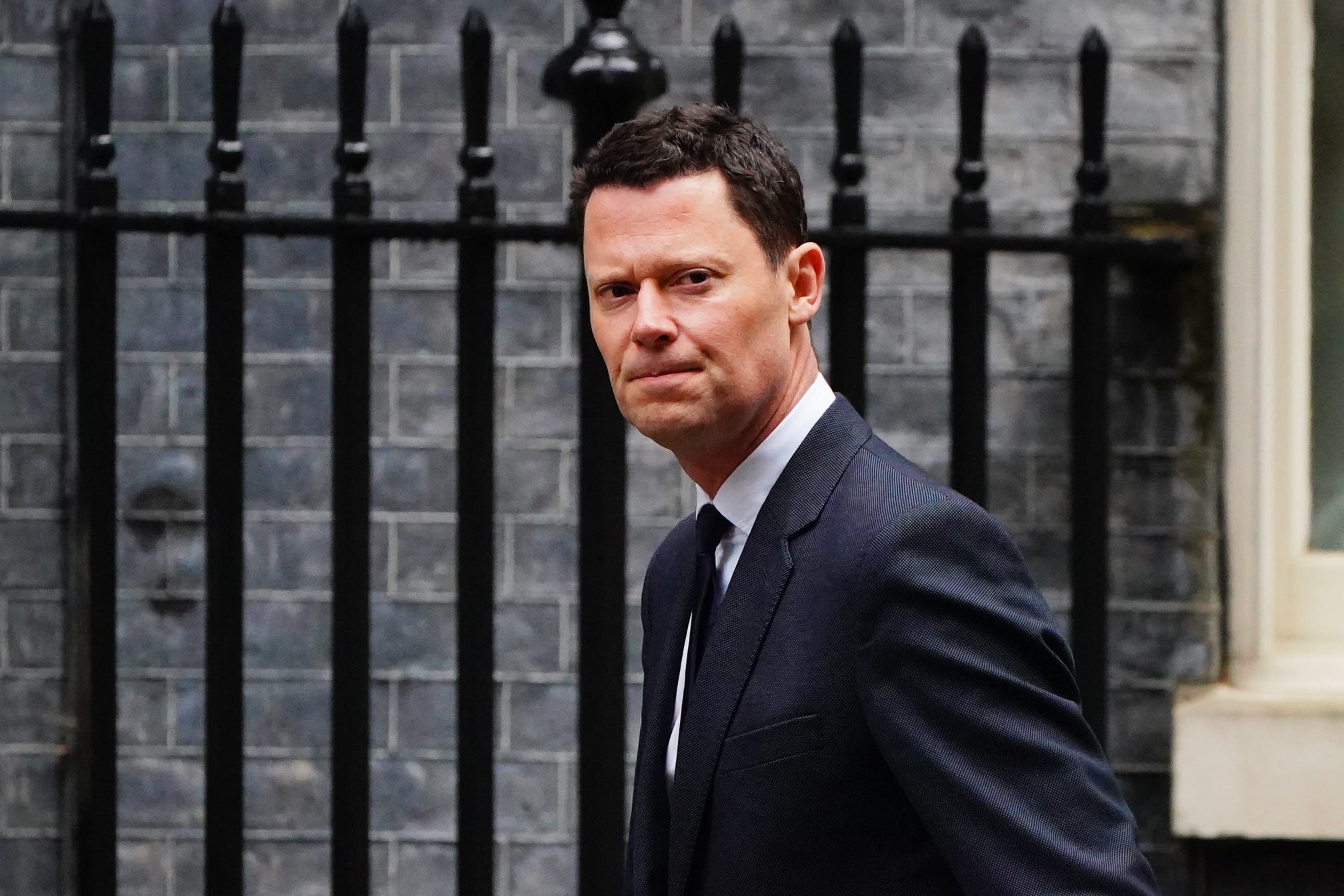Dominic Raab’s Bill of Rights under threat as new justice secretary acknowledges other ‘priorities’
Alex Chalk did not commit to pursuing law and told MPs he was ‘looking carefully at full range of department’s work’

Dominic Raab’s controversial Bill of Rights is under threat as his successor draws up his own plans for the overloaded Ministry of Justice.
New justice secretary Alex Chalk KC did not publicly back the law - or commit to pursuing it - when questioned in parliament on Tuesday. He also acknowledged that his department has other “priorities”.
The controversial law - which would abolish the Human Rights Act - was presented to parliament last June but stalled following the meltdown of Boris Johnson’s government. It was shelved by Liz Truss and then revived when Mr Raab was re-appointed as justice secretary by Rishi Sunak.
But Mr Raab’s resignation last month put its future into fresh doubt, with Ministry of Justice sources telling The Independent Mr Raab had been the sole driving force behind the Bill of Rights.
It has sparked division within the Conservative Party, with several current and former ministers privately voicing aversion towards what some have labelled a “vanity bill”.
The Conservatives’ 2019 election manifesto pledged to “update the Human Rights Act” but did not propose abolishing it or creating a Bill of Rights.
Asked whether progressing the law remained the government’s policy on Tuesday, Mr Chalk told the House of Commons: “I am looking carefully at the full range of the department’s work before setting out plans in detail.”
He said human rights “are important” and acknowledged the Ministry of Justice had many other priorities, including court backlogs, the prison system, probation staff shortages and the new Victims and Prisoners Bill.
Conservative MP Sir Bob Neill, who chairs parliament’s Justice Committee, suggested those issues would be the “best priorities” for the government rather than the Bill of Rights.
“What’s really important are the priorities that affect people’s day to day lives in their interactions with the justice system - making sure we have fully efficient and working courts, an efficient and humane prisons system,” he added.
Mr Chalk said his “very powerful points” would be “borne very much in mind” as he reviews the MoJ’s work.
An independent report on allegations that Mr Raab had bullied civil servants, which triggered his resignation last month, hinted at the internal conflict triggered by his attempt to scrap the Human Rights Act.
Referencing complaints which were registered between November and December 2022, Adam Tolley KC wrote: “The deputy prime minister’s policy priorities included the Bill of Rights and reform of the parole system.
“The DPM perceived what he described as ‘cultural resistance’ to these, amongst other, policies.”
The report said that civil servants “emphatically rejected” the claim, and said they were under an obligation “to give informed and impartial advice”.
Concerns have also been raised by parliamentarians across the political spectrum, lawyers and human rights organisations that the Bill of Rights would be unlawful, unworkable and damage the ability of everyone in Britain to enforce their fundamental freedoms.
Even Conservative MPs who support the law ideologically have questioned whether it can or should be pushed forward, as parliamentary time to enact a raft of other bills runs out before the next general election.
In January, a cross-party committee of MPs and peers called for the Bill of Rights to be scrapped, while warning it would weaken UK courts and cause more cases to be decided in Strasbourg.
Parliament's Joint Committee on Human Rights (JCHR) said there was “overwhelming” opposition and “inadequate justification” for the plans.
A report found an official consultation, call for evidence and survey found supporters were a “tiny minority” of overall respondents, and that there was no evidence the Bill of Rights would achieve stated aims such as protecting freedom of speech, strengthening parliamentary sovereignty and empowering British courts.
The plans have also been attacked by victims’ advocates including Dame Vera Baird KC, who resigned as the Victims’ Commissioner for England and Wales in September after Mr Raab allegedly blocked her re-appointment.
In a damning letter, she said the Bill of Rights “so severely threatens victims’ human rights that it undermines what little progress the Victims’ Bill is set to bring”.






Join our commenting forum
Join thought-provoking conversations, follow other Independent readers and see their replies
Comments